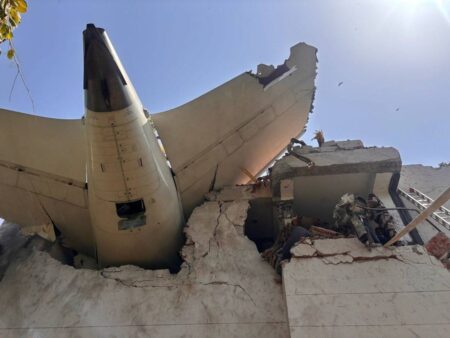
In the theater of life, we often move with rehearsed confidence—rising to alarms, drafting plans, and setting ambitions with firm belief as if the next moment is ours. We speak of “tomorrow” as though it is a certainty, not a fragile hope. Yet occasionally, life challenges that assumption with a reminder that we are all at the mercy of forces beyond our expectation. We have been warned about this sobering reality by philosophers, poets, and prophets for ages. For instance, the Bible in James 4:13-14 says, “Now listen, you who say, ‘Today or tomorrow we will go to this or that city, spend a year there, carry on business, and make money.’” Why, you do not even know what will happen tomorrow. What is your life? You are a mist that appears for a little while and then vanishes.” Furthermore, the Quran 31:34 says, “Verily Allah, with Him (Alone) is the knowledge of the Hour; He sends down the rain and knows that which is in the wombs. No person knows what he will earn tomorrow, and no person knows in what land he will die. Verily, Allah is All-Knower, All-Aware.” Similarly, Marcus Aurelius (Stoic philosopher) remarked, “You could leave life right now. Let that determine what you do, say, and think.” Yet, it is only when tragedy descends—swiftly and without warning—that the veil truly lifts. Tragedy in life, though painful, possesses an extraordinary clarity, reminding us what truly matters: the quality of our time, the weight of our choices, and the legacy of our presence. It is an invitation—to slow down, to look back, and to live more deliberately.

On Thursday, June 12, 2025, we awoke to the heartbreaking news of the crash of an Air India flight 171 (Boeing 787-8), bound for Gatwick, UK, in Ahmedabad, India. On a tragic day that began like any other, a plane took off—but never reached its destination. It crashed into a building, instantly ending the lives of not only those on board but also individuals who were simply going about their daily routines. Reports indicate the tragedy claimed the lives of 241 on board, leaving one survivor as well as 28 people who were inside the medical hostel building.
The 28 people were not on the plane. They were not passengers. They were not members of the flight crew. They were not connected with the aircraft. They were just going about their ordinary lives—studying, sleeping, perhaps preparing to go about their day—when their lives were abruptly and gruesomely terminated. As we still grieve the loss of so many, we are faced with a tough reality: life is extremely fragile, and most times, our fate is beyond our control. The deaths of those inside the building—unsuspecting, unprepared, and uninvolved—serve as a painful reminder that tragedy does not always knock before entering. It can strike us even at the most ordinary moments and in the safest places. This abrupt loss is also a formidable reminder to those of us living that life is uncertain and human control has its limits. Yes, the people who died in this hostel building had no reason to expect that they would not survive the day. Their deaths weren’t the consequence of any choice or risk—they were simply victims of life’s tragic unpredictability, caught in the wrong place at a time no one could foresee.
We like to put our lives in order with routines, duties, and carefully thought-out arrangements. We schedule alarms, make appointments, and establish long-term goals—all under the implicit assumption that tomorrow will arrive just as today did. Then there are days like this one that shatter that illusion. Days like this serve as a painful reminder that we cannot fully control our lives. No matter our plans, achievements, or careful arrangements, life can shift—or stop—abruptly.
So, as we mourn, we must also reflect. Not in terror, but in awareness; not in despair, but with purpose. Tragedy in life not only causes sadness, but it also brings clarity. It eliminates distractions and compels us to confront what is genuinely important: how we choose to live, what we live for, and what we leave behind. We cannot dictate how life ends, but we can decide how we live.
My dear reader, treasure every hour—it’s a gift, and don’t wait for the “perfect moment” to express love, gratitude, or pardon. Life does not offer refunds for hours spent or opportunities unused. Let go of what doesn’t serve you—especially petty conflicts. In the grand scheme of life, many arguments and grudges are not worth the weight they carry. Don’t let pride rob you of peace. Choose forgiveness over being right and healing over holding on. Life is too short to live entangled in bitterness.
We can’t control when we die, but we can control how we live. Let each day be marked by integrity, kindness, and contribution. Be the kind of person whose presence leaves people better and whose absence is deeply felt for the right reasons. We may never be on the plane, but life is unpredictable and can put us in its crash path.
And so, in moments like these—when tragedy hits close to home or pierces the veil of our everyday routines—we are reminded to live not merely with motion, but with meaning. In the end, regardless of our wealth, position, or plans, the fragile thread of mortality binds us all. As my mentor, Dr. David Abdulai, the founder of Shekhinah Clinic, once said, “Man is nothing more than a bundle of bones wrapped in flesh—destined one day to become a feast for maggots.” Life is fleeting, and death is inevitable—but the real question is when and how it will come and what comes next for us after we depart from this earth. As Stoic philosopher Marcus Aurelius wrote, “You could leave life right now. Let that determine what you do, say, and think.” Let us then walk this life with clarity, courage, and purpose—choosing virtue over vanity, contribution over comfort, and legacy over mere survival. Although we cannot control the ending of the story, we can decide how it is written each day.
If this message resonates with you, don’t keep it to yourself—please share it with friends and family and leave a comment. Let’s grow together in wisdom, purpose, and grace. Thank you for being part of the family.
ABOUT THE WRITER
Seiba Issifu is a PhD student in geography at The Ohio State University in Columbus, USA. His research critically investigates the contested socio-political dynamics of Ghana’s artisanal and small-scale mining (ASM) sector. Specifically, he examines the intricate interactions among state regulatory frameworks, local actors’ initiatives, and transnational forces that shape and contest control over Ghana’s mineral wealth. His work seeks to provide empirically grounded and theoretically informed insights to inform equitable policy responses that balance economic livelihoods, just resource governance, and sustainable development in resource-rich contexts.
Before joining Ohio State, Seiba earned a bachelor’s degree in development studies with first-class honors and an MPhil in agricultural economics from the University for Development Studies (UDS), Tamale, as well as a postgraduate diploma in geography education with distinction from the Catholic University of Ghana, Sunyani. He is the founder of Asco Publications and author of eight books on geography, economics, study skills, and personal development—many of which have been approved by the Ghana Education Service and are widely used by high school and undergraduate students across West Africa.
Contact details.
Email 1: seiba@seibaascom
Email 2: info@ascopublications.com
Email 3: issifu.1@osu.edu




I have known Seiba Issifu for over a decade, and throughout that time, he has consistently demonstrated exceptional dedication, ambition, and a strong work ethic. His commitment to excellence is evident in everything he does—always thoughtful, always on point. I am not at all surprised by his accomplishments. His writings and public engagements are consistently inspiring, educational, transformative, and deeply moving. Seiba is truly a visionary, and I have no doubt he will continue to make a meaningful impact through his writings. Keep it up bro!
Brilliant write-up — deeply inspiring and packed with powerful lessons. A timely reminder of what truly matters.Keep it up
This is worth reflecting on. Very insightful piece. Kudos, my Boss
This is a beautifully written piece with insightful life lessons. I truly appreciate the depth and thoughtfulness you put into it. Keep inspiring us with your excellent work!